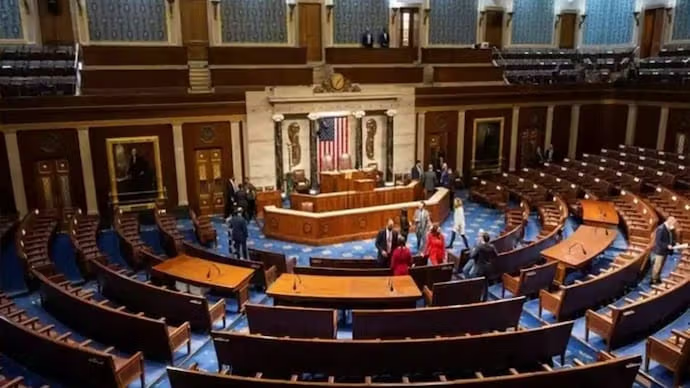RASC News Agency: The U.S. House of Representatives has passed a sweeping bill aimed at preventing the Taliban from benefiting directly or indirectly from American foreign aid, especially funds derived from U.S. taxpayers. The legislation, spearheaded by Republican Congressman Tim Burchett of Tennessee, reflects growing bipartisan concern over the misuse of humanitarian assistance in Taliban-controlled Afghanistan. The bill, officially titled the “Preventing Taxpayer Aid to Terrorists Act,” mandates the U.S. State Department to take concrete steps to ensure the Taliban does not siphon off American humanitarian aid destined for the Afghanistani population. It also requires regular reporting to Congress on efforts to prevent Taliban infiltration into the aid distribution process.
Burchett, one of the primary architects of the legislation, emphasized that “no U.S. tax dollar should ever be allowed to reach the hands of a group that remains on the U.S. Foreign Terrorist Organization list.” He previously warned that significant portions of international aid to Afghanistan have been either taxed by the Taliban or indirectly manipulated through their control over local distribution networks. In previous congressional testimony, former Secretary of State Antony Blinken acknowledged that the Taliban may have gained access to as much as $10 million of U.S. humanitarian assistance since 2021. While modest in comparison to the $3.5 billion in total U.S. aid to Afghanistan over the past four years, this amount has nonetheless triggered alarm among lawmakers wary of any empowerment of the Taliban regime.
Under the bill’s provisions, the State Department must also compile and submit a detailed report identifying foreign governments that have provided any form of financial assistance to Taliban-controlled Afghanistan since 2021. The report is expected to guide a coordinated international response, discouraging allies and partners from engaging in direct or indirect financial cooperation with the Taliban. “Every dollar that reaches the Taliban is a dollar that fuels repression, violence, and terror,” Burchett stated. “We cannot and must not allow American taxpayers to finance a regime that systematically brutalizes women, crushes dissent, and harbors extremist elements.”
Despite the bill’s clear focus on accountability and counterterrorism, some humanitarian organizations have expressed concern over the unintended consequences of aid restrictions. They warn that a complete suspension of foreign assistance could exacerbate the dire humanitarian crisis faced by ordinary Afghanistani civilians, especially women, children, and internally displaced families. These groups are calling not for aid cessation, but for stricter oversight mechanisms to ensure that relief reaches those in need without being diverted or extorted by the Taliban. They emphasize that humanitarian engagement remains a moral imperative, even under the constraints of political caution.
This legislative development comes amid broader anxieties about Taliban exploitation of international aid. During his presidency, Donald Trump sharply curtailed direct assistance to Afghanistan, limiting it strictly to emergency and life-saving humanitarian relief, amid growing evidence of Taliban interference in delivery operations. The bill’s passage signals a sharpened U.S. policy stance toward the Taliban, distinguishing between the humanitarian needs of the Afghanistani people and the terrorist governance structure that currently rules over them. As U.S. lawmakers move to codify stricter barriers between aid flows and the Taliban’s grip on power, the global community is expected to face mounting pressure to adopt similar safeguards in their dealings with the crisis-stricken nation.






